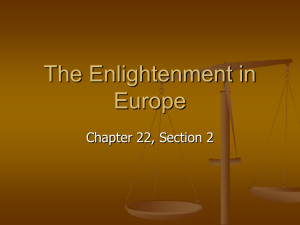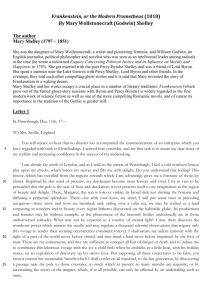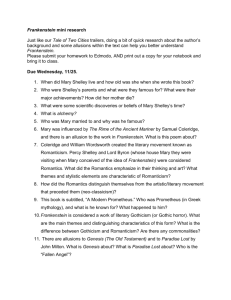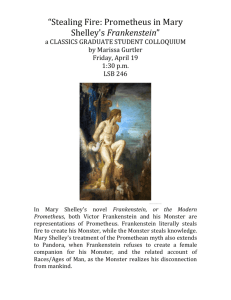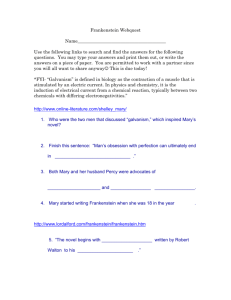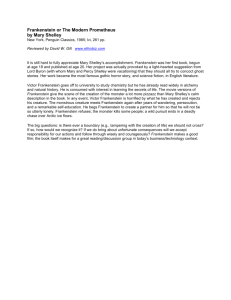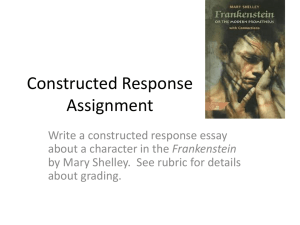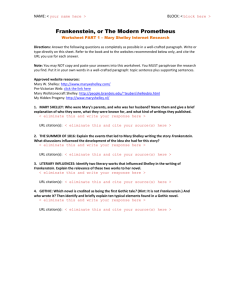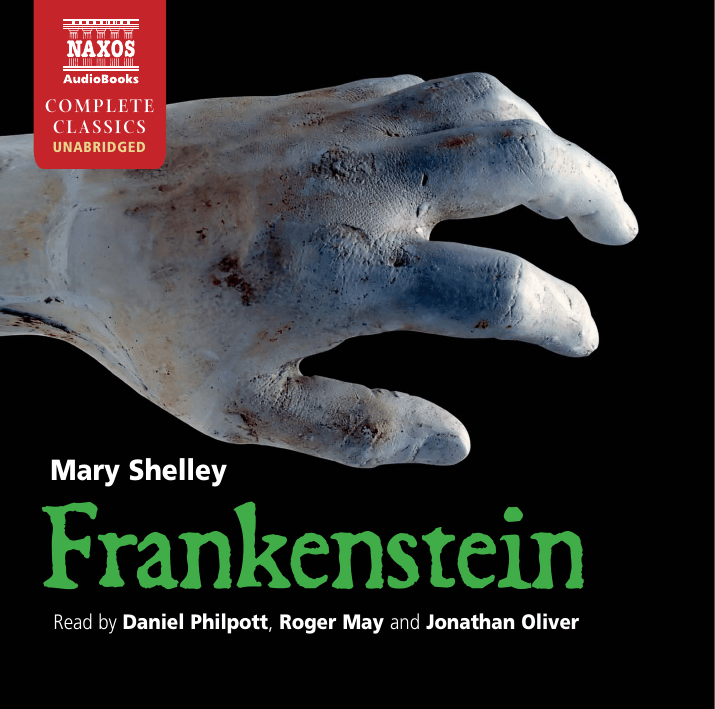
COM P LETE
C LASSIC S
UNABRIDGED
Mary Shelley
Frankenstein
Read by Daniel Philpott, Roger May and Jonathan Oliver
CD 1
CD 2
Frankenstein, or The Modern Prometheus
These visions faded when I perused…
3 Letter 2
4 Some years ago he loved a young Russian lady…
5 Letter 3
6 Letter 4
7 Two days passed in this manner…
8 August 13th
9 Even broken in spirit as he is…
10 Chapter 1
11 There was a considerable difference…
12 One day, when my father had gone by himself to Milan…
13 Chapter 2
14 I feel exquisite pleasure…
15 But here were books…
16 Chapter 3
17 My departure for Ingolstadt…
5:12
The next morning I delivered my letters…
Partly from curiosity and partly from idleness…
3 Chapter 4
4 Remember, I am not recording the vision of a madman.
5 The summer months passed while I was thus engaged… 6 Chapter 5
7 Morning, dismal and wet…
8 I trembled excessively…
9 Chapter 6
10 One by one, her brothers and sister died…
11 M. Krempe was not equally docile…
12 Chapter 7
13 Clerval, who had watched my countenance as I read this letter…
14 It was completely dark when I arrived in the environs of Geneva…
4:00
1
5:04
2
4:22
5:01
4:45
2:17
5:01
4:50
4:50
5:44
4:38
3:59
4:12
5:41
4:11
1
4:09
2
6:04
6:52
3:56
4:57
4:11
6:27
5:38
6:22
6:37
5:29
5:18
6:37
Total time on CD 2: 78:17
3:59
Total time on CD 1: 77:46
2
5:40
3
CD 3
CD 4
Six years had elapsed…
This was a strange tale…
3 Chapter 8
4 Several witnesses were called…
5 Soon after we heard…
6 During this conversation I had retired to a corner…
7 Chapter 9
8 At these moments I wept bitterly…
9 Sometimes I could cope with the sullen despair…
10 Chapter 10
11 It was nearly noon when I arrived at the top of the ascent.
12 ‘Begone! I will not hear you.’
13 Chapter 11
14 One day, when I was oppressed by the cold…
15 It was noon when I awoke…
1
4:31
2
4:04
6:44
5:27
4:32
5:07
4:40
6:00
4:53
5:36
6:15
5:38
5:28
5:08
5:19
On examining my dwelling…
Chapter 12
3 I discovered also another means…
4 I could mention innumerable instances…
5 My mode of life in my hovel was uniform.
6 Chapter 13 7 The next morning Felix went out to his work…
8 Every conversation of the cottagers now opened new wonders to me.
9 Chapter 14
10 Safie related that her mother was a Christian Arab…
11 They found a miserable asylum in the cottage in Germany…
12 Chapter 15
13 The volume of Plutarch’s Lives…
14 Several changes, in the meantime, took place in the cottage.
15 One day, when the sun shone on the red leaves…
16 Do not despair.
1
5:36
2
4:13
4:47
4:07
3:56
5:49
5:24
5:37
4:44
4:57
3:52
4:17
6:50
4:51
3:50
5:22
Total time on CD 3: 79:22
Total time on CD 4: 78:12
4
5
CD 6
CD 5
Chapter 16
4:48
When my hunger was appeased…
5:14
3 And now, with the world before me…
4:01
4 I generally rested during the day…
4:48
5 It was evening when I arrived…
7:15
6 Chapter 17
4:21
7 I was moved.
4:25
8 I paused some time to reflect on all he had related…
4:54
9 Chapter 18 5:06
10 I listened to my father in silence…
5:21
11 It was in the latter end of September…
3:32
12 We travelled at the time of the vintage…
5:34
13 Chapter 19
4:08
14 We quitted London on the 27th of March…
4:13
15 From Derby, still journeying northwards…
4:36
16 Having parted from my friend…
4:20
Total time on CD 5: 76:36
Chapter 20
4:24
Several hours passed…
5:38
3 All was again silent…
5:26
4 Nothing could be more complete…
4:00
5 Some hours passed thus…
4:59
6 Chapter 21
5:26
7 The human frame could no longer support the agonies…
3:59
8 As the images that floated before me became more distinct…
5:43
9 Nothing, at this moment, could have given me greater pleasure…
4:18
10 My father tried to awaken in me the feelings of affection.
4:39
11 Chapter 22
4:17
12 As time passed away I became more calm…
4:57
13 This letter revived in my memory what I had before forgotten…
4:38
14 Elizabeth alone had the power to draw me from these fits…
5:37
15 After the ceremony was performed…
3:41
16 Chapter 23
3:57
17 When I recovered I found myself surrounded…
2:57
Total time on CD 6: 78:36
6
7
1
2
1
2
Mary Shelley
(1797–1851)
CD 7
After an interval I arose…
What then became of me?
3 Chapter 24
4 Amidst the wilds of Tartary and Russia…
5 As I still pursued my journey to the northward…
6 I cannot guess how many days have passed…
7 Walton, in continuation.
8 Our conversations are not always confined to his own history…
9 September 2nd
10 September 5th
11 September 7th
12 His sentence was pronounced…
13 His voice became fainter as he spoke…
14 His voice seemed suffocated…
15 I was at first touched by the expressions of his misery…
16 ‘You, who call Frankenstein your friend…’
17 ‘Fear not that I shall be the instrument of future mischief.’
1
4:07
2
6:37
5:16
5:19
3:59
5:58
4:09
5:33
2:32
6:06
3:17
4:57
4:27
4:50
3:59
3:02
5:03
Total time on CD 7: 79:11
Total time on CDs 1–7: 9:08:00
8
Frankenstein
Mary Shelley was the daughter of the
radical feminist Mary Wollstonecraft and
the mistress ­­– later the wife – of the poet
Percy Bysshe Shelley. In 1816, she and her
half-sister Claire Claremont, mistress of
both Shelley and Byron, followed Shelley
into exile from his native land, where his
frank espousal of a philosophy of ‘free
love’ and his outspoken atheism had been
relished. They spent the summer with
Lord Byron (also on the run from scandal
in England) who had taken the Villa
Diodati on the shores of Lake Geneva.
The company may even have been joined
by the shade of Milton who had once
occupied the house. But the current of
creative genius that had produced the
divine spark in Milton had become, in the
popular imagination, something demonic
in these two arch-Romantic poets.
On 15 June, as the lightning flickered
across the lake, Mary listened to the
conversation of Byron, Shelley and Dr
Polidori (Byron’s young amanuensis). They
were discussing galvanism (the medical
use of electric current) and the possibility
of provoking the very spark of life by its
means. The subject was of particular
interest to Shelley, who had experimented
with electrical instruments at Oxford. At
the same time, the company was deeply
engrossed in German horror stories, and
the following day each agreed to try
their hand at writing a ghost story. The
published outcome was Polidori’s The
Vampyre – adapted from Byron’s effort,
which had in turn been inspired by a
hysterical fantasy from Shelley – and Mary
Shelley’s Frankenstein.
Inspiration had been slow in coming,
9
life meaningful, as it pursues him to the
grave.
Frankenstein is a meditation upon the
grounds of evil inspired by the anarchist
philosophy of Mary’s father, William
Godwin. It is also a daring development
of Milton’s vision of the fallen angel in
Paradise Lost and a critique of the idea
of divine creation itself. But finally, it
must be recognised as quite a new thing
for its time: it is the first work of science
fiction in English. And as science fiction,
it is about the limitations of goodwill
without wisdom. It is a dire warning
against technological hubris, against the
temptation to assume that benevolent
intentions are sufficient to procure
beneficent results. Its timely message
is that there are matters with which we
tamper at our peril. As such, the novel
remains the most powerful Promethean
fable of modern times.
Notes by Duncan Steen
but when it did her nightmarish creation
broke fully formed upon her drowsing
consciousness. She ‘saw the pale student
of unhallowed arts’ turning in horror
from ‘his odious handiwork’, the vile
assemblage of human remains which he
had animated with the breath of life. And
in working out this ghastly fantasy into
a full narrative, her inspiration did not
desert her.
She was hardly 19. Though she
lived another 35 years, she never again
approached the visionary grandeur of
conception achieved in this, her first literary
effort. All her youthful life’s experience
went into it. Above all, it was about Shelley
himself, who is both the idealistic creative
spirit and the hounded outcast, both Dr
Frankenstein and his monster. In a sense,
the popular misconception that gives the
name Frankenstein to the monster is an
appropriate one. Frankenstein’s creation
haunts him like his own evil genius,
his own shadow made flesh. For it is
his refusal to take responsibility for the
unprepossessing fruit of his actions that
turns it into an avenging angel, destroying
all the human connections that make
10
Cast
Victor Frankenstein Daniel Philpott
Captain Robert Walton Roger May
Daemon Jonathan Oliver
Daniel Philpott trained at LAMDA and, after success in the prestigious
Carlton-Hobbs Award for Radio Drama, recorded for BBC Radio 4 and other
broadcast work. His theatre work includes many London fringe productions.
Jonathan Oliver has appeared in theatre throughout the UK in works
ranging from Julius Caesar (for the English Shakespeare Company) to
Bulgakov’s The Master and Margarita. Widely experienced in television, film
and radio, he has, for a decade, also recorded audiobooks for the Royal
National Institute for the Blind.
Roger May has recorded many books and short stories including Death on
the Nile, The Elephant Keeper and The Day of the Triffids for BBC 7. He has
also appeared in over 100 radio plays for the BBC. His stage credits include
The Winslow Boy with Timothy West and The Railway Children – a sitespecific production on the old Eurostar platform in Waterloo Station.
Credits
Recorded at Motivation Sound Studios, London
Produced by Roy McMillan. Edited and mastered by Chris Goldsmith
ALL RIGHTS RESERVED. UNAUTHORISED PUBLIC PERFORMANCE, BROADCASTING
AND COPYING OF THESE COMPACT DISCS PROHIBITED.
Cover Design: Hannah Whale, Fruition – Creative Concepts, using images from Dreamstime
11
For a complete catalogue and details of how to order other
Naxos AudioBooks titles please contact:
In the UK: Naxos AudioBooks, Select Music & Video Distribution,
3 Wells Place, Redhill, Surrey RH1 3SL.
Tel: 01737 645600.
In the USA: Naxos of America Inc.,
1810 Columbia Ave., Suite 28, Franklin, TN37064.
Tel: +1 615 771 9393
In Australia: Select Audio/Visual Distribution Pty. Ltd.,
PO Box 691, Brookvale, NSW 2100.
Tel: +61 299481811
order online at
www.naxosaudiobooks.com
12

